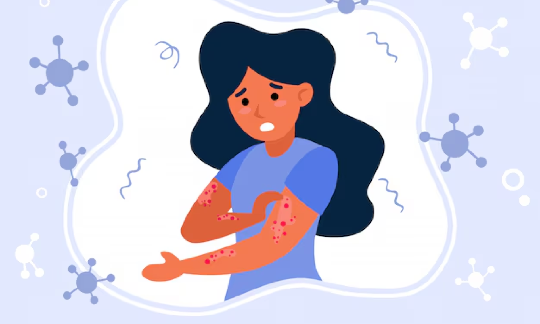Measles Outbreak in Gauteng: What to do
Measles is a highly contagious viral infection that can lead to serious health complications, especially in young children and adults with weakened immune systems. Recent outbreaks in Gauteng have raised concerns, with several cases reported in the province.
If you’re unsure about how to stay safe during this outbreak, you’ve come to the right place.
In this article, we’ll guide you through what measles is, how to prevent it, symptoms to watch out for, and what to do if you think you or someone you know might be infected.
What is Measles?
Measles is a viral infection that primarily affects the respiratory system. It is caused by the measles virus, which is transmitted through the air via respiratory droplets when an infected person coughs or sneezes.
The virus can stay in the air for up to two hours after the infected person has left the area, making it highly contagious. Symptoms typically appear 10-14 days after exposure to the virus. Measles can lead to severe complications, including pneumonia, encephalitis (brain inflammation), and even death, especially in young children and people with weakened immune systems.
How Can Measles Be Prevented?
Measles can be effectively prevented through vaccination. The measles vaccine is a safe and highly effective way to protect individuals from the disease.
- Vaccination: Ensure you and your children are up to date with the Measles, Mumps, and Rubella (MMR) vaccine.
- Hygiene: Wash hands regularly and cover your mouth when coughing or sneezing to limit the spread of the virus.
- Avoiding Exposure: Stay away from infected individuals, especially in crowded or public spaces during an outbreak.
- Boosters: If you’ve never been vaccinated or unsure of your vaccine status, speak to a healthcare provider about getting the MMR booster shot.
Who Can Be Affected by Measles?
Anyone who has not been vaccinated or previously infected with measles can be affected by the disease. However, certain groups are more vulnerable:
- Young children: Particularly those under the age of 5, are at higher risk of severe complications.
- Unvaccinated individuals: Anyone who has not received the MMR vaccine or has not had measles before is susceptible.
- Pregnant women: Pregnant women who are not immune to measles can have complications, including miscarriage.
- Individuals with weakened immune systems: Those with conditions like HIV/AIDS, cancer, or those on immunosuppressive treatments are more likely to experience severe illness.
What Are the Symptoms of Measles?
Measles symptoms typically develop in stages. Here are some key symptoms to look out for:
- Fever: One of the earliest signs of measles, it often begins 10-12 days after exposure.
- Cough: A dry cough that worsens over time is common.
- Runny nose: Nasal congestion or a runny nose often accompanies the early stages.
- Red eyes (conjunctivitis): Eyes may become watery and sensitive to light.
- Koplik spots: Small white spots inside the mouth, typically seen a few days before the rash appears.
- Rash: A characteristic red or brownish rash appears a few days after the fever, typically starting at the hairline and spreading downward.
How Is Measles Treated?
There is no specific antiviral treatment for measles. Treatment focuses on relieving symptoms and preventing complications.
- Supportive care: Includes rest, hydration, and good nutrition to help the body recover.
- Vitamin A supplements: These can help reduce the risk of complications, especially in children.
- Fever management: Paracetamol or ibuprofen can help reduce fever and discomfort.
- Antibiotics: Prescribed if bacterial infections, such as pneumonia or ear infections, develop as complications.
What to Do if You Suspect You or a Loved One May Be Affected?
If you suspect that you or a loved one may have measles, it is important to seek medical care immediately.
- Contact a healthcare provider: At our clinic, we can assess your symptoms and perform relevant tests to confirm whether it’s measles.
- Avoid contact with others: To prevent the spread of the disease, stay home and limit interaction with others until you can get medical advice.
- Follow the healthcare provider’s guidance: Your healthcare provider will offer guidance on managing symptoms and preventing complications. In some cases, hospitalization may be required if there are severe complications.
Special Note
A person with measles is infectious for four days before the rash appears and four days after it appears. During this period, it is crucial to stay home to prevent spreading the virus to others.
Where to Get More Information
For more information on measles and vaccination, visit the South African Department of Health website at www.health.gov.za or consult your healthcare provider.
Conclusion
Measles is a serious but preventable disease. Staying informed about the symptoms, prevention methods, and when to seek help can protect you and your loved ones from the effects of this virus. If you are concerned that you or someone you know may be infected, don’t hesitate to contact us. Our clinic is here to help you with diagnosis, treatment, and guidance on how to manage measles. Stay safe, stay informed, and take proactive steps to protect yourself and your family.

